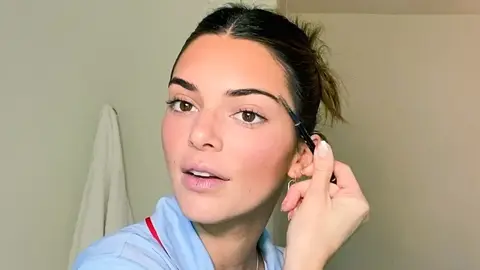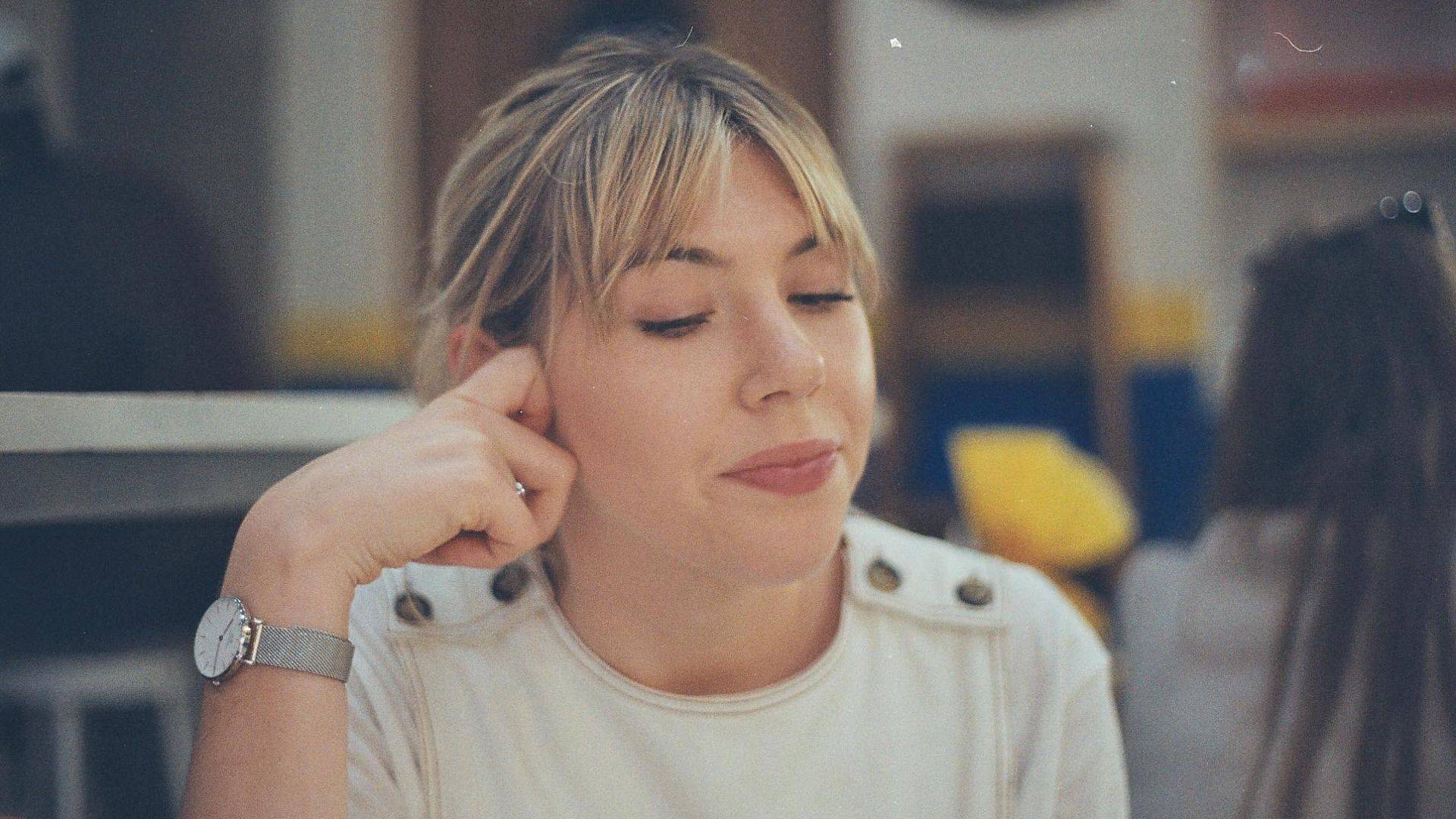Vogue’s ‘Beauty Secrets’ Videos Sell Women The Same Old Lies

One of the perils of a working internet connection is that you sometimes find yourself watching YouTube videos you simply never intended to. You know how it is. You’re minding your business, dealing with the dissonance of watching Lorde’s new summer music video while encased in two jumpers, before suddenly finding yourself so mesmerised by ‘Lucy Hale’s ‘25-step Guide To Everyday Makeup’ that you end up watching the full 20-minute video, followed by another one, and another one, and another one. Just me? Ok. Such is the power of Vogue’s wildly popular ‘Beauty Secrets’ series, what the famous publication describes as an “intimate series” that “takes us in the bathroom with well-known and beloved beauty, fashion and pop culture faces”.
While most of the people featured in the series are extremely glamorous – think Laura Harrier, Gigi Hadid and Olivia Wilde – the energy here is rather lo-fi; at least by celebrity standards. It’s as though we just happened upon these celebrities one morning, by chance, and they just graciously decided to “walk through” their daily skincare and beauty routines in their most relatable pyjamas. While female celebrities in recent decades have largely been at odds with showing their face looking any less than perfect, Vogue’s series sees them with the magnanimity to show up bare-faced and showcase their ‘flaws’. Lily Collins has melasma! Lucy Hale has a zit! Laura Harrier has some barely visible pigmentation!
‘Beauty Secrets’ labours to emphasise so-called imperfections: not even celebrities wake up with beaming, flawless skin, the series says. That celebration of real, human skin feels like an artefact of a wider cultural backlash to what Jia Tolentino in The New Yorker referred to as ‘Instagram Face’, a phenomenon that feels so intrinsic to the cultural biome of the 2010s that I’m almost glad I grew up in the decade before it. For most of that decade, Instagram has been about hypercurated, FaceTuned bodies – in particular, wrinkle-free, ‘flawless’ female faces broadly inspired by Kim Kardashian’s. Tolentino describes it as a “single, cyborgian look” imbued with a “rootless exoticism”.
In contrast, ‘Beauty Secrets’ shows us undone celebrity faces in (what appear to be) uncurated moments: sudsing up with their favourite soapy cleanser as they reach for a face towel, all pink-faced and flustered. In doing so, the videos pander to a Gen Z sensibility in which the imperative to acknowledge your imperfections – one that almost every celebrity offers at the start of a ‘Beauty Secrets’ video – is a kind of obligatory salute. “I have struggled with my skin for the past three years”, declares US singer Madison Beer in her video, her hair pulled back in a plush leopard-print headband and no obvious evidence of that fact. She then – like several others of the ‘Beauty Secrets’ guests – reveals she is recovering from a bad bout of cystic acne. It’s called authenticity, people. Are you not refreshed?
Yep, relatability is the name of the game here. The New York Times dubs relatability a “psychological lubricant”; the “coin of the digital-media real” and “a mealy concept that delights advertisers and publishers alike because it all but guarantees to garner attention”. So while ‘Beauty Secrets’ ostensibly offers audiences a more forgiving version of femininity – one in which where flaws are okay and perfect skin isn’t a given – it’s easy to forget the point of these videos is to talk about skin as something that can be controlled; albeit with the right discipline, and most importantly: the right products, all of which are listed under each ‘Beauty Secrets’ video alongside the relevant affiliate link.
I can only be impressed by how hard Vogue and the wheels of capitalism change to adapt to changing sensibilities. I mean, you’d think that a general cultural shift towards authenticity (of not being ashamed of having imperfect human skin) would imply a move away from lengthy beauty routines; but ‘Beauty Secrets’ has found a way for them to go hand-in-hand. In large part, this is because the videos frame skincare and beauty practices as a form of self-care. “Self-care has become super important to me lately,” explains Olivia Rodrigo in her turn on ‘Beauty Secrets’ after pressing her face with a massage tool. “Doing your makeup, or you’re doing your skincare, or you’re taking a shower, and taking care of your hair or whatever, you’re not on your phone, and you’re by yourself, and you can kind of really recharge. That’s really important to me … I’m very much an introvert”.
Here, Vogue has no qualms about pandering to a consumer-focused version of self-care – one that we can confirm isn’t actually self-care at all – to ensure that celebrities keep on maintaining their mutually beneficial and long standing relationship with the beauty industry. The Atlantic, for example, has said that celebrity culture sits bang in the middle of the massive skincare and anti-aging industry, an industry forecasted to reach – are you ready for this? – $463.5 billion USD by 2027. This is obviously gargantuan money, and the industry needs celebrities to keep spruiking beauty and skincare products, by whatever means necessary, to keep the game afloat.
With the move away from FaceTuned faces towards a relatable, lo-fi authenticity, the emergence of highly-publicised videos like ‘Beauty Secrets’ – whether it’s in the name of treating their (relatable) acne, or maybe self-care – Vogue’s videos actually work to uphold a very conventional set of beliefs. First, that expensive skincare products actually help women in any way (some might, but for the most part it’s unlikely). And second, that while cultural sensibilities may change (the FaceTune app will likely soon find itself consigned to the dustbin of history) as women we must never, ever forget the importance of a beautiful face.
This is an opinion piece, written by Reena Gupta, a Melbourne-based writer for MTV. Follow her on Twitter at @purpletank.





